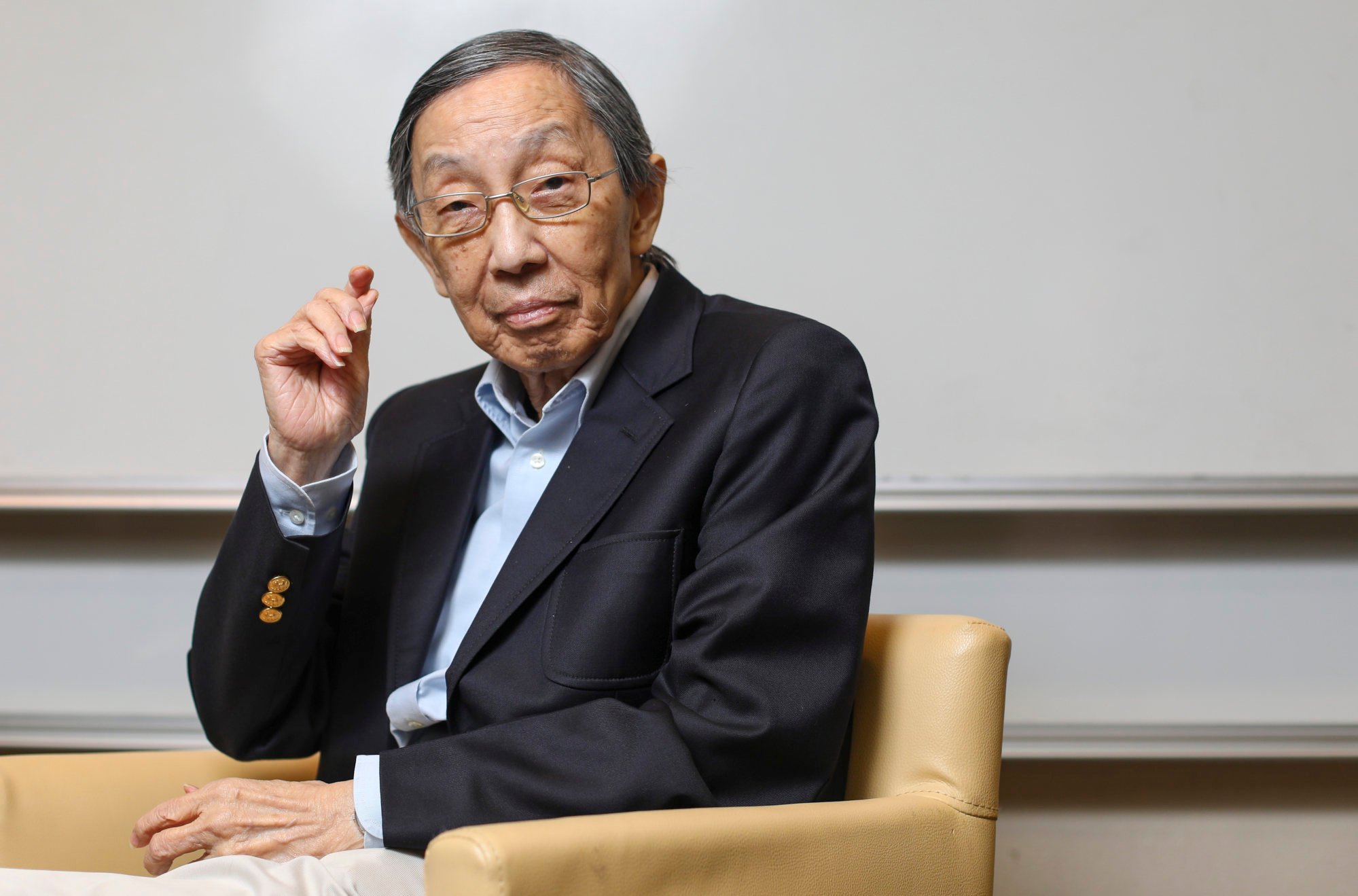
Press on, even if you cannot win: Raymond Roy Wong, Hong Kong’s ‘godfather of journalism’, urges the city’s reporters not to censor themselves
- Wong described the national security law as ‘draconian’, but told journalism practitioners not to lose hope
- He was speaking alongside two Post reporters, who were granted Baptist University fellowships sponsored by a HK$50 million donation he made
It is not in Hong Kong’s or Beijing’s interests to live without free press, retired veteran journalist Raymond Roy Wong has said, urging reporters not to censor themselves despite what he called an existing “draconian” law.
In a seminar on Tuesday on the future of the city’s media sector, 84-year-old Wong said reporters should not lose hope after Beijing imposed the national security law on the city two years ago.
“For [journalism] practitioners, we’re still making a living, punching the computer or whatever or shooting pictures, just do it as you used to do [and] don’t censor yourself because you cannot win,” he said. “Where there is a will, there is hope.”

Wong, a professor at Hong Kong Baptist University, was popularly known as the godfather of journalism in local media circles, and retired in 2004 as the assistant general manager of Television Broadcasts.
Themed “Journalism in Hong Kong: Lights Out?”, the round table aimed to discuss how recent changes in the city’s politics, economy and technology had shaped press freedom, especially against the backdrop of the proposed regulations of Article 23 of the city’s mini-constitution and on false news.
“I would like to think that there are no governments at the SAR level or at the national level in Beijing that want Hong Kong to live without a free press,” Wong said, speaking alongside two members of the Post’s newsroom.
Tsang and Zhou spent a semester with the university attending classes they were interested in to absorb new knowledge, while receiving a stipend.
Despite the existing and looming challenges of their jobs, the duo remain determined to stay in the industry.
“As long as Hong Kong continues to operate outside China’s Great Firewall, there is hope and plenty of opportunities,” Tsang said. “I will keep working on what I am passionate about and follow my calling as a journalist.”
The journalists say they will remain committed to producing factual, fair and balanced news by adhering to the Post’s fact-based core values.
“As reporters, we are the mirrors of this society. We report facts and the readers will judge,” Zhou said.

Hong Kong Chief Executive John Lee Ka-chiu said during his maiden policy address last month that his administration would press ahead with completing preparatory work for Article 23 of the Basic Law and a consultancy study on another legislation to address the issue of misinformation and disinformation.
Concerns over press freedom in Hong Kong have mounted following the introduction of the national security law and the abrupt closures of Apple Daily, Stand News, Citizen News and Factwire News Agency since June last year.
The national security law, which forbids acts of secession, subversion, terrorism and collusion with foreign forces, does not cover all seven offences listed in Article 23. Those yet to be addressed are treason, sedition, theft of state secrets, a ban on foreign political organisations or bodies from conducting political activities in the city and local political entities from establishing ties with their foreign counterparts.

